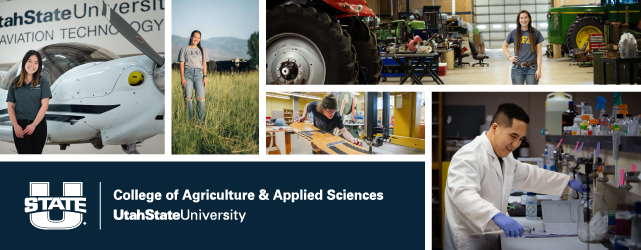A Genome-wide Association Study for Mastitis Resistance in Phenotypically Well-characterized Holstein Dairy Cattle Using a Selective Genotyping Approach
Document Type
Article
Journal/Book Title/Conference
Immunogenetics
Publisher
Springer Link
Publication Date
9-25-2018
First Page
1
Last Page
13
Abstract
A decrease in the incidence of bovine mastitis, the costliest disease in the dairy industry, can be facilitated through genetic marker-assisted selective breeding programs. Identification of genomic variants associated with mastitis resistance is an ongoing endeavor for which genome-wide association studies (GWAS) using high-density arrays provide a valuable tool. We identified single nucleotide polymorphisms (SNPs) in Holstein dairy cattle associated with mastitis resistance in a GWAS by using a high-density SNP array. Mastitis-resistant (15) and mastitis-susceptible (28) phenotypic extremes were identified from 224 lactating dairy cows on commercial dairy farm located in Utah based on multiple criteria of mastitis resistance over an 8-month period. Twenty-seven quantitative trait loci (QTLs) for mastitis resistance were identified based on 117 SNPs suggestive of genome-wide significance for mastitis resistance (p ≤ 1 × 10⁻⁴), including 10 novel QTLs. Seventeen QTLs overlapped previously reported QTLs of traits relevant to mastitis, including four QTLs for teat length. One QTL includes the RAS guanyl-releasing protein 1 gene (RASGRP1), a candidate gene for mastitis resistance. This GWAS identifies 117 candidate SNPs and 27 QTLs for mastitis resistance using a selective genotyping approach, including 10 novel QTLs. Based on overlap with previously identified QTLs, teat length appears to be an important trait in mastitis resistance. RASGRP1, overlapped by one QTL, is a candidate gene for mastitis resistance.
Recommended Citation
Kurz, J. P., Yang, Z., Weiss, R. B., Wilson, D. J., Rood, K. A., Liu, G. E., Wang, Z. (2018) A genome-wide association study for mastitis resistance in phenotypically well-characterized Holstein dairy cattle using a selective genotyping approach. Immunogenetics. https://doi.org/10.1007/s00251-018-1088-9





